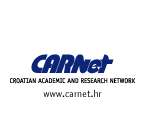

|
||
 |
||
 |
||


Euphoric imposing of unstructured, and for machine insufficiently categorically marked, data on the Web transform natural interrogative means of communication in time consuming surfing. Not efficiently reusable and categorically not connected data are wasting computing power of Net, even of most sophisticated machines. Surfing proprietary formats using descriptors on Web, with content marked only for presentation, and picking objects from unclassified garbage discourages both serious content creators as well as content users. On first contact with actual technology, child's or researcher's hunger for (better illusion of, and more intellectual) interactivity must be downgraded to its reality within virtuality. In more academical environment it is well known fact that so called "Dynamic Web" and other presentational eldorado industry of the Web is not an optimal option for its maturing towards the most democratic medium.
It is understandable that in no formal collaboration between hospital
with more than 155 years of medical practice, such as Clinical hospital
"Sestre milosrdnice", Croatian Referral Centre for Voice and
from some other established genetic and informatic research centres
their researchers and experts included in clinical work explicated no
satisfaction with potentially one-vendor "integrated" solutions, with
diversity of (closed, proprietary) standards and, today, with practice
based only on Syntactic Web without very actual Web recommendation.
They are looking for appropriate and better way of collaborating knowledge
which is being lost under tons of proprietary presentations and unmarked
pictures or video content every day.
That's the reason we attempt to accept and better understand Knowledge
Based Semantic Management (KBSM) as most urgent orientations towards
knowledge society. In period of last three years we have implemented
some aspects of hypermedia which combines IP teleconferencing and several
well-known (de-facto standard) Web-based technologies in hospital collaboration
system. For Web-based interface to Internet we use stable Open Source
solutions with classically oriented somewhat conservative approach (not
wanting to run essential services on latest, bleeding age but also immature
technologies). Administrative access is implemented using only strong
RSA public key on ssh2 protocol, HTTPS Web-based e-mail, intranet with
private (and several public) forums, trouble ticketing feature and other
well-proven technologies for creating and publishing content on our
"first Web layer". This we regard as possible money-saving
model for other hospitals and theirs non-proprietary open-Web interfaces.
Regarding these possibilities we are convinced it is the time and opportunity
to implement two more directions of using Web as more knowledge management
and more collaborative tool.
First thing to do is stimulation of flexible, more read-write Web approach to asynchronous communication. For more flexible and more creative means of knowledge exchange in real, ready for changes hospital and their scientific and educational environment, on http://www.kbsm.hr we have prepared Wiki based (wiki.kbsm.hr), semantic blog oriented (wp.kbsm.hr), teacher to student (moodle.kbsm.hr) and phpNuke portal based (portal.kbsm.hr) tools. We hope that choosing some of mentioned state-of-the-art facilities and resources, employees, students and researchers in trusted team and community members will be able to engage in collaborative efforts, crossing institutional, disciplinary and many other bound not much formalized at the beginning. We also believe that some of them will succeed in collaboration toward better preparing second, not so simple but extremely important direction.
We are convinced that understanding possibilities of new and more standardized knowledge representation technology, learning and working with such concepts, languages (e.g. OWL – Ontology Web Language) and tools for semantic and so-called cognitive support, in multimedia and hypermedia environment as healthcare is, can save significant amounts of money which can be otherwise wasted in market based "integrated" informatics solutions. We are also convinced that medical and other no medical experts who work in Croatian’s healthcare have many experiences that can be e.g., transformed in so-called "clinical practice guidelines" (CPGs, accompanied by good knowledge engineer in more standard way), in creation and use of medical terminologies, in representation of medical knowledge, in larger scale knowledge base development using multiple authors, and all readable by man and machine. Although Croatia is not yet member of EU we value semantic-oriented projects such as SWAD-Europe Thesaurus Activity, their Simple Knowledge Organisation Systems – SKOS with not strictly defined semantic - as some kind complement to OWL and others in relation with EU listed at http://hupnoz.blog.hr, as very important.
In real, not yet released power of information technology we can expect knowledge exchange according to Semantic Web initiative, using machines to better manage descriptively presented knowledge. This second directions is being prepared for ontology based Web extension of Semantic Web, for more robot and Web-agent support and more intelligent query possibilities based on description logic. For such approach we use, propose, and try to organize help for colleagues in using Protégé as knowledge and ontology editor and theirs plug-ins as Protégé-OWL or Jambalaya as graphical knowledge language based, cognitive support tool for ontology modeling. We are also looking for more essential support (from local political, management and educational structures) in better understanding HP Jena2, IBM, KAON, or by some other, ontology Web based management tools.
Biography
Just as same as first two (who are working in this field since1972.),
all authors encourage and promote knowledge technology, informatics
and humanistic education, Open Source and Web-based education and collaboration,
most of them in medical, research and high school environment. Much
of their works (also presented at past CUCs) can be easily found by
keyword-based Internet search; last paper was published at Conference
CROInfo: Knowledge Management (2004, Zagreb) "Editing the Knowledge?
Some Authoring Dilemmas for Collaborative Era of Knowledge Management"
(http://www.nsk.hr/croinfo/croinfo4/Prezent/EditingTheKnowledgePapes.pdf).